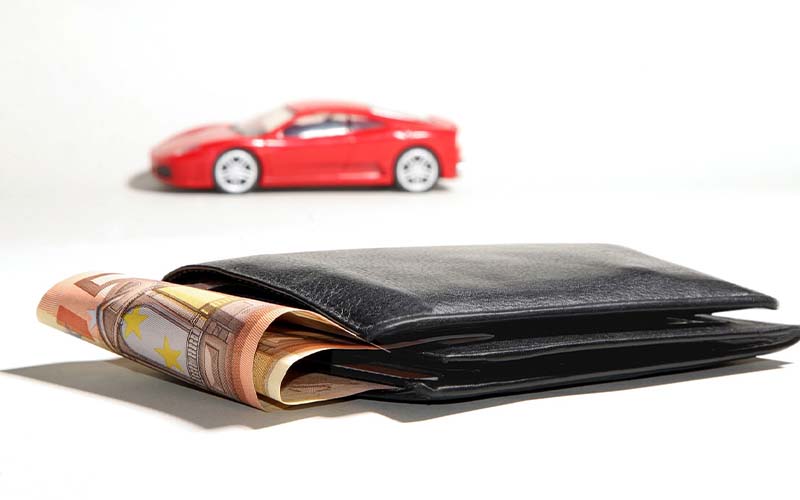When can you refinance a car loan? You might be wondering when you can refinance your auto loan if you just bought a car and want to lower your interest rate or monthly payment.
Anytime you want, you can refinance your auto loan. Though some lenders might make you wait six months or longer, others might not have a set waiting period after you buy a car.
Regardless of who gives you a new loan, the bank can’t refinance your car until your original creditor receives the title or certificate of ownership from the dealership or previous owner. Months may pass as a result of this process.
Waiting might be advantageous for you, depending on your circumstances.
What It Means to Refinance Your Car
So what does the term “refinance” mean? You could save a lot of money by taking out a new loan to pay off the original one. Depending on your needs, the term can be extended or decreased to match the length of your current loan.
To give themselves more time to repay the debt, many borrowers opt to lengthen the repayment period. But any savings you achieve through refinancing will probably be diminished or lost if this practice is followed.
When to Refinance Your Car Loan
To assist you in choosing the ideal refinancing time, consider the following general guidelines.
During the First 60 to 90 Days of the Car Loan
Your car’s title typically needs to pass from the manufacturer or previous owner to your current lender over a period of at least two to three months. If the title hasn’t transferred, the majority of lenders won’t even consider a refinance application. However, waiting might present an opportunity to pre-qualify with various lenders and compare rates.
When you applied for the original loan, the hard inquiry on your credit report may have caused a temporary small drop in your credit score. The interest rate on your new loan could go up as a result of this decline. You’ll gain from waiting for your credit score to improve unless you already have good or excellent credit (a FICO score of 690 or higher).
At Least 6 Months into the Car Loan
Waiting until at least six months into the loan term gives your credit score more time to recover from any brief drops. Wait until your credit score makes it possible for you to be approved for a rate that is lower than your current one if your goal is to lower the interest rate and monthly payment.
Wait at least a year before refinancing if this is your first time borrowing money for a car or if you’ve previously experienced credit problems. In this manner, you’ll have enough time to establish a solid track record of on-time payments. Before considering a refinancing application, some lenders require six to twelve months of on-time payments.
2 Years Or More Remaining on the Car Loan
You need to have at least two years left on your auto loan for the refinancing to be profitable. There is less opportunity for savings if you refinance too late in the term because most interest is paid at the start of the loan term.
The majority of lenders also have refinancing criteria that apply later in the loan process. These vary from lender to lender and typically include the number of months left on your loan term, the outstanding loan balance, the age of the car, and its mileage. Ask about the specific requirements for refinancing from lenders when you submit an application to them.

Reasons to Refinance Your Auto Loan
Does refinancing your auto loan make sense? If you recently purchased your wheels, you might have noticed that your payment or interest rate isn’t in line with the market, or perhaps you’re just dissatisfied with how your financial institution is performing.
Just keep in mind that you should only refinance your vehicle if doing so will improve your circumstances. Here are a few reasons why car owners should consider refinancing:
You Got a Bad Loan
In the event that you take out a loan with a high interest rate, refinancing your vehicle’s payment might be a wise financial move. Auto loans are based on the prime rate, which has recently been rising. Don’t hesitate to switch lenders if the finance manager gave you a rate you can beat on your own.
It’s possible that interest rates have dropped since you bought the car, or it’s possible that your dealership inflated the rate to increase their profits. In either case, it’s best to stay away from this circumstance in the future and obtain preapproval before you shop.
Your Credit Rating Improved
Your rating will rise if you purchase a car with credit. As long as you pay your bills on time each month, that is. Your trustworthy track record might cause a nice spike on your credit report even after just a year.
With a better rating, you might be able to get an interest rate that is much lower. There are a few other ways you can boost your overall score, including:
- Eliminate any outstanding debt.
- Increase your income.
- Add additional credit lines.
- Dispute any errors.
- The maximum amount of credit you can use is 30%.
You Found a New Lender
Leveraging a relationship you’ve established with another lender may enable you to make monthly financial savings.
Being a member of a credit union may also entitle you to member benefits like exclusive auto loan rates. Some financial institutions will also refinance your initial loan at enticing rates in an effort to draw in new clients.
You Took the Rebate
To increase sales, automakers frequently provide enticements like rebates and low interest rates. It’s possible that you should refinance your loan if you chose the cash over the rate break.
Both advantages may be advantageous to borrowers with excellent credit. As an illustration, you might accept a $2000 rebate with a 7 percent interest rate and then shop around for a lower percentage rate from another bank over the following few months.
You Can’t Make the Payments
Refinancing could offer you some relief if you’re having trouble keeping up with your payments, particularly in the first year of car ownership. However, make sure to first check with your present lender.
To keep your business, they might also be open to extending the new loan past its initial maturity date or offering you a lower interest rate, both of which will help you pay less overall.
You must be aware that refinancing an auto loan with a longer repayment period might result in you paying more interest overall. It might be best to only keep your new term for a brief period of time. In order to lower your principal balance more quickly, you can also make additional payments when you can.
You might be able to refinance with cash out thanks to your bank. With this choice, your new debt will be greater than what you already owe, allowing you to receive additional funds to use as you please.
This strategy is risky, as your debit could exceed your vehicle’s value, putting you “upside down” if you decide to sell it or trade it in for another car despite a potentially lower payment.
You Have Other Goals
Including a small sum of money in your monthly budget can help you achieve other worthwhile goals, such as taking a long vacation or opening a business.
The majority of auto lenders don’t charge origination fees, but you will probably have to pay a small title transfer fee to your state’s motor vehicle department. Theoretically, you are permitted to refinance as frequently as is prudent from a financial standpoint due to the low interest rate.
When Not to Refinance a Car Loan
It’s just as crucial to understand when you should and shouldn’t refinance a car loan. This is due to the fact that refinancing at the incorrect time may result in higher loan costs or a lower credit rating.
Here are some situations in which you might want to avoid refinancing your auto loan:
You’re Upside-down on Your Car Loan
Owners of cars occasionally discover that they owe more on them than they are worth. This situation is referred to as being underwater or upside-down on your auto loan. This puts you at serious financial risk unless you’ve enrolled in guaranteed asset protection, also known as gap coverage. If they lend the borrowers money at all, lenders typically charge them extremely high interest rates for refinancing in this circumstance.
Your Current Loan Has Prepayment Penalties
One of the best ways to lower your interest rate is to pay off your loan early, provided that there are no prepayment penalties associated with the loan. When borrowers pay off their debts in full before the loan term expires, financial institutions sometimes charge these penalties to make up for the interest they lose. Prepayment penalties can easily cost as much as, if not more than, the savings from refinancing your auto loan.
You Bought the Car Within the Last Six Months
When you obtain a new loan, your credit rating is lowered. While you may see more enticing rates advertised soon after purchasing your new or used car, the decline in your credit score means you probably won’t get as enticing of a rate as you would if you waited for your score to improve. Refinancing your auto loan should generally be delayed for at least six months.
You’ve Taken Other Loans Out Recently
You should wait to refinance if you’ve recently taken out any other loans for the same reason you shouldn’t do so for at least six months after receiving your car loan. Any new loan, whether it be a personal loan, home mortgage, or new credit card, will lower your credit score.
Your credit may suffer even from loan shopping if a hard inquiry is necessary. However, it only lasts for a short while. If you recently took out a new loan, waiting for your credit score to improve can help you get the best auto loan rate when refinancing your vehicle.
When is a Good Time to Refinance?
What time exactly can you refinance a car loan if there isn’t a set period of time that’s early or late? What justifies starting the process in the first place? Three critical factors are great indicators that refinancing your car loan might make sense:
- Your credit score improved: You might be eligible for a lower interest rate on a car loan now if you’ve been working to raise your credit score but bought a car when it was much lower. If you have reason to believe that not all of your efforts are in place yet, waiting until your credit score improves can be a good way to ensure you get the best boost possible
- You don’t have upcoming credit inquiries: A hard credit inquiry is made when you refinance because it involves applying for a loan. Due to lenders’ dislike of seeing you make numerous credit requests at once, this temporarily lowers your credit score. For this reason, wait a little while after any major credit requests (like a new credit card or a mortgage loan) before initiating a car loan refinance
- Interest rates are down: Refinancing your auto loan may make sense when interest rates are declining relative to the one you originally received. If you can receive a lower interest rate, you may reap the benefit of paying less interest and having a lower payment for the rest of the loan
When is Refinancing More Than Once a Good Idea?
Refinancing typically entails some costs and work to apply for the loan. Refinancing can be done multiple times, though, as long as there are no fees involved. The most important thing is to make sure that every refinance offers more benefit than it costs.
Factors That Affect Refinancing Rates
Using information about the borrowers and their vehicles, lenders determine interest rates for borrowers. Though they are given different scores by lenders, the majority of them base your rates on the same standards.
Here are the main factors that affect your auto refinancing rates:
- Credit score: Your interest rate is primarily affected by your credit history. The lowest rates are offered to borrowers with excellent credit ratings. Bad credit holders are subject to higher rates and struggle to obtain loans.
- Loan term: You have some control over how long it will take to pay off your loan depending on your financial situation. While a longer term can result in lower monthly payments, it also typically carries a higher interest rate.
- Vehicle age: Finance costs for older cars are typically higher than those for new or used cars that are more recent. Expect to pay more in interest if you want to finance a car that is more than a few years old.
- Vehicle mileage: Higher mileage vehicles will have higher interest rates, just like older cars.
- Loan-to-value (LTV) ratio: The value of your car in relation to the amount you want to borrow is also a factor. You will typically be given a higher interest rate if your LTV ratio is higher, which means you are borrowing more money relative to the value of the vehicle.
Timing a Car Loan Refinance
You can compare prices when you notice changes that seem favorable for refinancing a car loan, such as declining interest rates or increases in credit score. To avoid having more than one hard credit inquiry on your report due to multiple quotes within a 14-day period, make sure to collect them all within a two-week period.
Getting quotes can help you figure out what the costs would be for your situation and how much the refinance would benefit you. The best decision for your monthly payment, overall costs, and any other special circumstances can be made by looking at the numbers.





